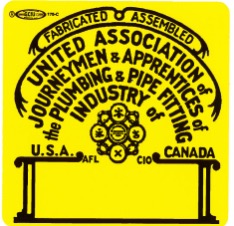
Complex and sensitive facilities—such as nuclear and fossil fuel plants, refineries, steel and paper mills, chemical processing plants, and semiconductor and pharmaceutical manufacturing plants—require sophisticated piping systems. These systems must perform under great stress while adhering to strict safety, health, and governmental regulations. Relying on well-developed, industry-recognized standards ensures that your work meets even the most demanding criteria.
Since 1913, the Pipe Fabrication Institute (PFI) has been developing and writing Standards for the pipe fabrication industry. These Standards are referenced by ASME B31 piping codes; engineering, procurement, and construction companies (EPCs); and multiple end users.
PFI’s piping Standards are developed and maintained to the current ASME Codes and Industry Standards by the PFI Engineering Committee, a group of engineers, quality inspectors, fabrication software consultants, and flange and fitting manufacturers who meet twice a year. The committee’s unique blend of expertise helps make PFI’s Standards the highest referenced Standard with EPCs and end users in the pipe fabrication industry. Among their most notable Standards is ES-03, Fabrication Tolerances, which establishes the acceptable tolerances for fabrication. Referencing PFI ES-03 in your next bid or fabrication drawing can increase a potential client’s confidence in your work.
Another popular Standard is ES-48, Random Examination, which describes a commonsense approach that gives you options for achieving the ASME’s B31.3 code requirements for random examination. Standard TB-10, Guidelines for Calculating Factored Weld Diameter Inches, establishes methods for calculating diameter inches of weld that can be consistently applied to pipe spool fabrication to measure job progress.
The PFI Engineering Committee continuously develops new Standards to promote progress in the pipe fabrication industry. One of the newest Standards, ES-50, Internal Oxidation for Piping Welds, serves as a simple means of identifying the acceptable level of discoloration of the root side of stainless-steel pipe welds. It also gives general guidance on the level of root surface discoloration that can be tolerated for some service conditions. Additionally, the Standard lists estimated purge time to reduce the parts per million of oxygen inside the pipe, which affects discoloration and integrity of the root pass.
With over 40 Standards and Technical Bulletins, ranging from branch reinforcement worksheets to visual examinations, PFI has the fabrication Standard to help you meet client demands.
For more information, visit pfi-institute.org/home.


